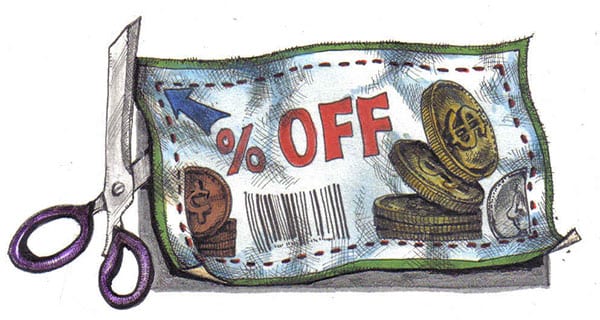 Municipal spending in British Columbia is rising far too fast. According to a report from the Canadian Federation of Independent Business, the cost of running municipal governments – even after accounting for price inflation and population growth – rose by an average of 28 per cent across the province from 2006 to 2016.
Municipal spending in British Columbia is rising far too fast. According to a report from the Canadian Federation of Independent Business, the cost of running municipal governments – even after accounting for price inflation and population growth – rose by an average of 28 per cent across the province from 2006 to 2016.
The business federation gave numerous suggestions on how cities could save taxpayers’ money. For example, by reining in out-of-control public sector wages, distributing documents digitally to save paper costs and leasing out city facilities when they’re not being used.
These are fine ideas on how to save taxpayers’ money by running municipal services more like businesses.
However, the best way to cut government waste isn’t by having the government do better, but rather by having the government do less. The surest way to conform the bloated costs of municipal services to more efficient private sector standards is to have these services delivered by private businesses instead of the municipal government.
There are two ways to privatize services. The first is to privatize production while maintaining public provision. An example of this is the contracting out of garbage collection.
According to research from the C.D. Howe Institute, “Ontario cities with fully contracted-out garbage services have the lowest operating costs” because “competition through contracting drives costs down.”
Not only does business competition reduce costs, it also improves the quality of services.
After Toronto contracted out a section of the city’s garbage collection in August 2012, the complaint rate in that area fell by 28 per cent in the next few years, compared to a nine per cent increase in the rate of complaints in the parts of the city where garbage collection wasn’t contracted out. In addition to the better service, taxpayers saved $11.1 million a year.
Contracting out services like garbage collection is an example of private production of a publicly provided service. Even though a private business produces the service, government still decides the service should be provided.
The second way to privatize a service is simply private provision. This means getting government out of the picture completely. Government-run swimming pools, golf courses, skating rinks and even libraries are examples of municipally-provided services that should be considered for this kind of privatization.
Residents in all Canadian cities rely on private provision for food, clothing, and most other goods and services. The government doesn’t own or run grocery stores, restaurants or clothing stores. Just about everybody agrees that the production of food and clothing is best left to the private sector.
What’s true for food and clothing – and computers, automobiles and so on – is also true for swimming pools, golf courses, skating rinks and libraries. There’s no reason these services should be provided by government instead of private businesses.
Similar to contracting out government services, private provision means lower costs and better services for consumers and taxpayers. Competition drives costs down and quality up.
The added benefit of private provision is that goods and services will only be provided if people demand it, and these goods and services will be paid for only by the people who consume them. People who don’t swim shouldn’t be forced to pay, through taxes, for swimming pools. In neighbourhoods where residents are disinterested in swimming, there probably shouldn’t be a pool.
Getting the best value for taxpayers and ensuring the best use of resources doesn’t just mean the municipal government should do better. In many cases, it means the municipal government should do less.
Matthew Lau is a research associate with the Frontier Centre for Public Policy.
The views, opinions and positions expressed by columnists and contributors are the author’s alone. They do not inherently or expressly reflect the views, opinions and/or positions of our publication.


